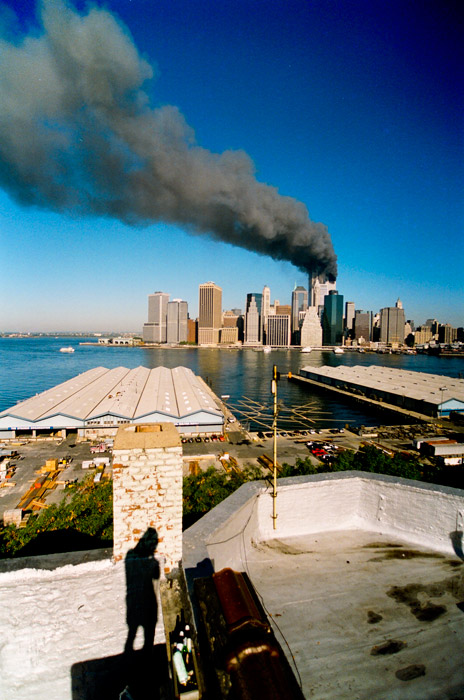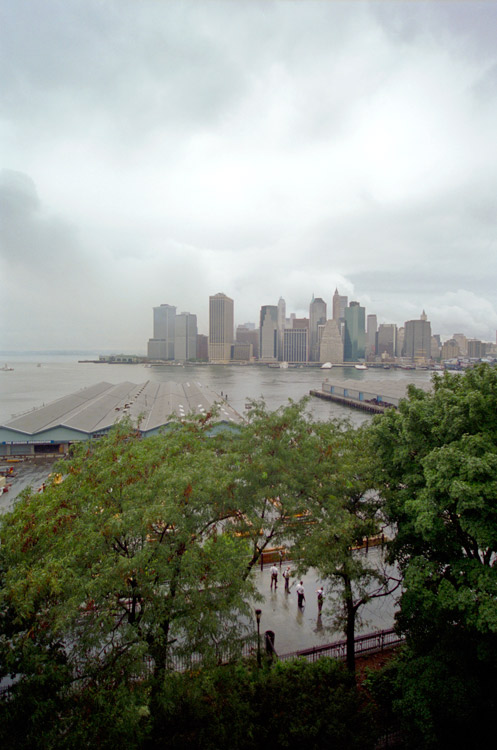I Heard the Sirens Scream
For most of my adult life I have borne witness. It’s what I won a Pulitzer Prize for, years ago. I go to epidemics, wars, places where people are struggling to cope with disasters, and I carefully log the accounts and events, trying to represent the lives and experiences of others. The position of “outsider” is emotionally safe, even as agonizing events unfold.
But I could not distance myself from the extraordinary sequence of events that fell on America, and especially my home town of New York City, in 2001. A decade later I am still trying to understand how the attacks on the World Trade Center and the anthrax mailings affected me, and those I love. I heard the first jet slam into the north tower of the World Trade Center, and from the rooftop of my apartment building watched the second commercial jet veer towards lower Manhattan, change its trajectory, and slice across the upper floors of the south tower. I was standing on the Manhattan anchorage of the Brooklyn Bridge when the first tower crumbled like a deflated accordion, spewing dust and debris in every direction and crushing the life out of thousands of people within.
And a month later, as people started falling ill from inhalation of anthrax spores, one of the nation’s top bioterrorism experts called me to warn that I was a likely target: Stop opening your mail.
The flow of these events, from the hijacking of four commercial jets on September 11th to the November death of an anthrax-infected Connecticut villager, took most of the world population from a remarkably united emotional and political place, to a deeply divided, frustrated, angry position. The arc of the response matters: It ultimately determined the course of historic events worldwide and tore America asunder, the people having lost trust in their government and without it, most forms of social cohesion. By the end of the winter of 2002 the arc had completed, from spectacular unity and confidence in governance to deep division and accusations of American arrogance. Through the frustrated anthrax investigations and drumbeats of war, the global community, especially Americans, moved in just a few months’ time from collectivism to fragmentation.
This book is structured in two parts. The first, THE END OF THE AGE OF INNOCENCE, is written in the present tense, describing almost hourly the events that unfolded primarily in Washington DC and New York City over 120 days in the fall and winter of 2001 and 2002. Each day is a chapter that opens with the actual diary entry that I sent on that date to a list of friends all over the world. The entry is followed by a detailed breakdown of the day’s events, unfolding like a novel.
Part two, NEW WORLD ORDER, details the repercussions of these events, transformations of critical government institutions, public health disasters, and what, in particular, the specter of terrorism meant for the American people. Revelations abound in this book, including:
The bizarre chemistry of The Plume that rose from the burning crushed World Trade Center for four months, endangering the health of hundreds of thousands of New Yorkers.
Evidence that al-Qaeda may have been behind the anthrax mailings.
Devastating spending and restructuring followed the attacks, leaving the nation less prepared for terrorism ten years later, and broke.
Each incident following the opening of anthrax-laden letters reveals countless errors and misjudgments.
There was no “weapons-grade anthrax” in those letters – a finding with profound health and political implications.
QUICK LINKS














































































